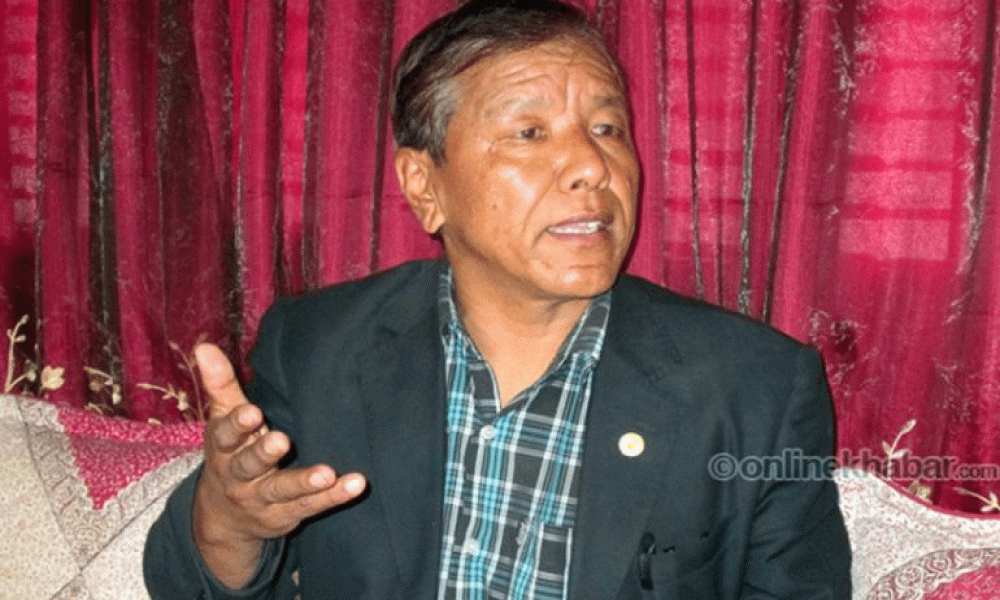Ang Kaji Sherpa
Nepal is an ethnically diverse county, where Hindus who worship cow as the goddess Laxmi and Adivasi Janajatis who eat beef have been living together for centuries. So any law that disrespects culture of either community is unacceptable. But the Nepali state has always considered cow as the national animal, preventing Adivasi Janajatis and other minority religious groups from eating beef.
Nepal's new constitution has retained cow as the national animal, giving legitimacy to unjust provisions of the Muluki Ain (the land of the land) about prohibition on slaughtering of cow. This is unacceptable to Adivasi Janajatis because eating beef is part of our culture, and we are very proud of who we are. The state must not disrespect our culture.
So, when a Janajati is arrested on the charges of killing cow and eating beef, the state needs to look into several aspects.
Janajatis because eating beef is part of our culture, and we are very proud of who we are. The state must not disrespect our culture.
a) Nepal is now a secular state. Even the new constitution, against which we are on the streets, has recognized Nepal as a secular state. And banning cow slaughtering and beef eating are against principles of secularism. So provisions of the Muluki Ain or any other laws that contradict secularism must be scrapped.
b) Adivasi Janajati people are being arrested, charged with slaughtering of cow and sentenced to villages. But sale and consumption of beet hardy draw the state's attention in cities. In department stores and restaurants run by Hindu Brahmins and Chhetris, sale of beef is hardly a legal issue.
c) In most cases, trial against Adivasi Janajatis charged with slaughtering cow and eating beef is not fair. The accused are not allowed to defend their cases in their own language. The administration and judiciary are dominated by Hindu hill Bahuns and Chhetris, and their prejudice is in play when innocent Adivasi Janajatis are charged with slaughtering cow.
The administration and judiciary are dominated by Hindu hill Bahuns and Chhetris, and their prejudice is in play when innocent Adivasi Janajatis are charged with slaughtering cow.
d) Laws require government attorneys to separately record statements of the accused. But in most cases of cow slaughter, government attorneys rely on statements recorded from the accused by police. Adivasi Janajatis arrested for killing cow are too poor to defend them in the court. They cannot hire lawyers. Even if they do, lawyers belonging to the dominant Bahun-Chhetri community do not try their best to protect their Janajati clients charged with cow slaughter.
e) The Nepali media is just an extension of the Nepali state. They always write against Adivasi Janajatis accused of killing cow.
f) Kangaroo is Australia's national animal. But eating Kangaroo meat is not illegal in Australia. So why can Nepal not lift ban on eating cow meat while still considering it as our national animal. Allowing Adivasi Janajatis to eat cow meat will only strengthen cultural harmony and develop Nepal as a plural society.
Kangaroo is Australia's national animal. But eating Kangaroo meat is not illegal in Australia. So why can Nepal not lift ban on eating cow meat while still considering it as our national animal.
When Nepal's constitution-1990 declared cow as the national animal, Adivasi Janajatis took to the streets collecting about 500,000 signatures against it. But the state did not listen to us. A state cannot pass laws that are against culture of its own people anywhere in the world. But Nepal has disregarded these international principles. While some Hindu fanatics argue that cow must be the national animal because she is their goddess Laxmi, other moderate Hindus say it is necessary to protect cows from becoming extinct with industrialization and urbanization. If cow is the goddess Laxmi for the Hindus, it is just a type of meat for Adivasi Janajatis. And if cow needs to be the national animal for its existence, what about other more endangered animals like one-horned rhinos and tigers?
(The writer is former General Secretary of Nepal Federation of Indigenous Nationalities)









